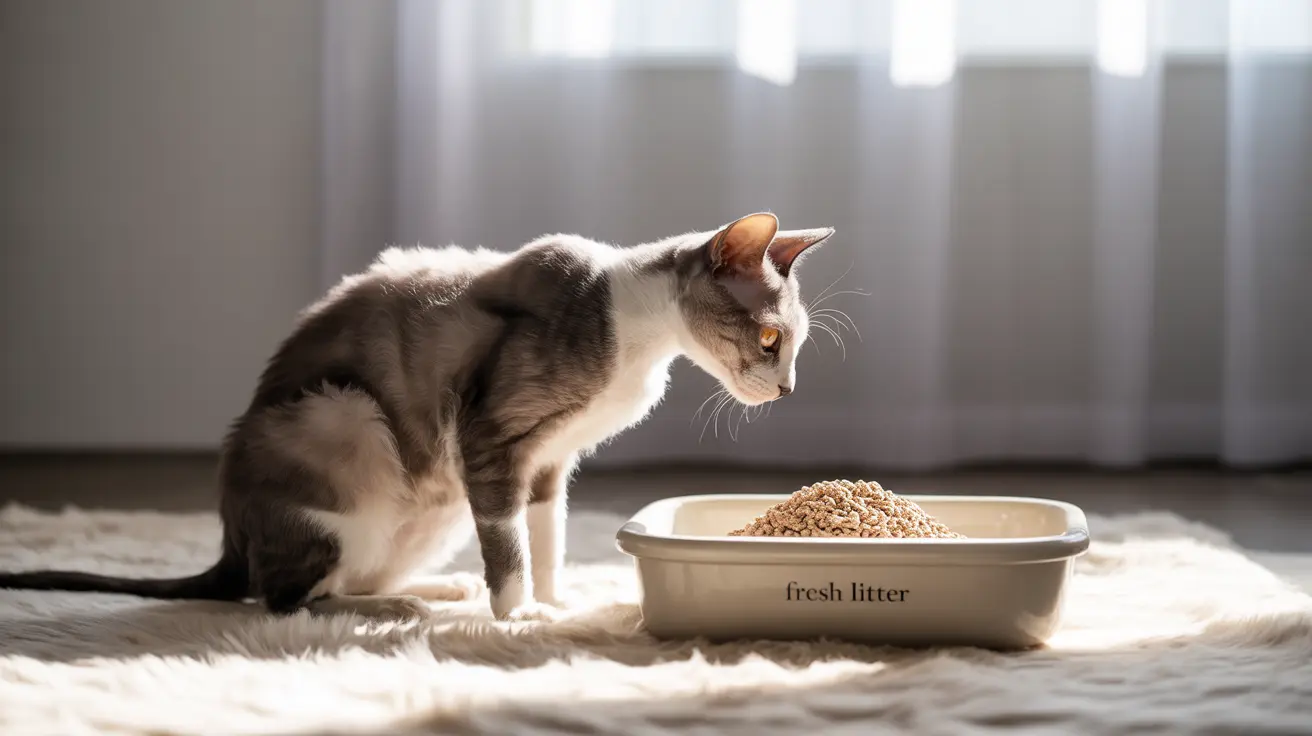If you've caught your cat eating litter, you're right to be concerned. This unusual behavior, known as pica, can signal various underlying issues ranging from simple curiosity to serious health conditions. Understanding why cats eat litter and how to address this behavior is crucial for maintaining your pet's health and safety.
In this comprehensive guide, we'll explore the causes behind litter consumption, potential health risks, and effective solutions to protect your feline friend.
Common Reasons Why Cats Eat Litter
Natural Curiosity in Kittens
Kittens commonly explore their environment through taste and texture, making them prone to sampling their litter. While this exploratory behavior typically subsides with age, persistent litter eating requires attention and intervention.
Medical Conditions and Nutritional Deficiencies
Adult cats may eat litter due to underlying health issues, including:
- Anemia
- Nutritional deficiencies (especially iron and calcium)
- Kidney disease
- Thyroid disorders
- Internal parasites
Behavioral and Environmental Factors
Sometimes, the behavior stems from psychological or environmental triggers:
- Stress and anxiety
- Boredom
- Environmental changes
- Separation anxiety
- Compulsive behavior disorders
Health Risks of Eating Cat Litter
Immediate Physical Dangers
Consuming cat litter can lead to several serious health complications:
- Intestinal blockages (especially with clumping litter)
- Digestive system irritation
- Respiratory problems from dust inhalation
- Bacterial infections
Long-term Health Concerns
Chronic litter consumption may result in:
- Mineral imbalances
- Chronic digestive issues
- Respiratory disease
- Compromised immune system
Prevention and Solutions
Environmental Modifications
Make these practical changes to discourage litter eating:
- Switch to non-clumping, natural litter alternatives
- Use covered litter boxes when appropriate
- Increase cleaning frequency
- Position boxes in low-stress areas
Dietary Adjustments
Ensure proper nutrition by:
- Feeding high-quality, balanced cat food
- Consulting with your vet about potential supplements
- Maintaining consistent feeding schedules
- Providing fresh water daily
Enrichment Activities
Combat boredom and stress through:
- Interactive play sessions
- Puzzle feeders and toys
- Climbing structures and scratching posts
- Window perches for environmental stimulation
When to Seek Veterinary Care
Contact your veterinarian immediately if you notice:
- Frequent litter consumption
- Changes in appetite or weight
- Lethargy or weakness
- Pale gums
- Digestive issues or constipation
Frequently Asked Questions
Why is my cat eating cat litter and is this behavior normal?
While occasional investigation of litter is normal for kittens, regular consumption is not normal behavior for any cat. This could indicate nutritional deficiencies, medical issues, or behavioral problems that require veterinary attention.
What health risks can cat litter ingestion cause in cats?
Cat litter ingestion can cause serious health problems including intestinal blockages, respiratory issues, and bacterial infections. Clumping litter is particularly dangerous as it can create solid masses in the digestive tract.
How can I tell if my cat eating litter is a sign of a medical problem like anemia or parasites?
Look for symptoms such as pale gums, lethargy, weight loss, changes in appetite, or digestive issues. These signs, combined with litter eating, warrant immediate veterinary examination.
What types of cat litter are safer if my cat keeps eating litter?
Consider switching to paper-based, wood pellet, or other natural alternatives that are less harmful if ingested. Avoid clumping litters containing sodium bentonite, which can cause serious blockages.
How can I prevent or stop my cat from eating litter due to stress or boredom?
Provide environmental enrichment through toys, climbing structures, and interactive play. Ensure a stress-free environment, maintain routine, and consider using feline pheromone products. Address any anxiety triggers and provide plenty of attention and stimulation.
Conclusion
While cat litter eating is a concerning behavior, understanding its causes and taking appropriate action can help protect your cat's health. Always consult with your veterinarian when you notice this behavior, and implement preventive measures to ensure your cat's safety and well-being.






